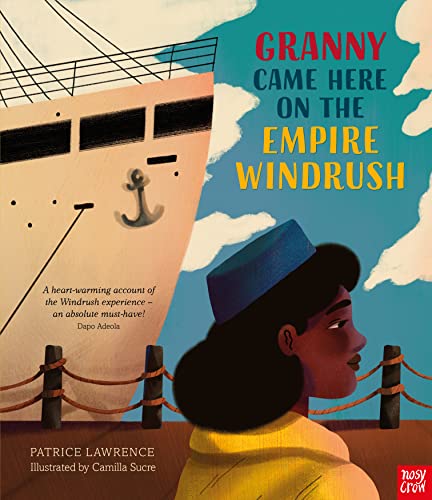Granny Came Here on the Empire Windrush
The arrival in Britain of people from the Caribbean on the ship the Empire Windrush has been the subject of several recent picture books. The racist treatment that many of the Windrush generation have received, to the extent that some have been unjustly deported despite their contribution to society, has attracted considerable attention, and these books for young children celebrate their lives collectively and individually with verve and vitality.
In Patrice Lawrence and Camilla Sucre’s book, Granny Came Here on the Empire Windrush (Nosy Crow, 2022, £7.99, pb, 40pp, 9781839942310), Ava and her Trinidadian Granny explore Black women’s history as they talk about which woman she admires, who Ava could dress up as for a school occasion. The names of Rosa Parks, Mary Seacole and Winifred Atwell are invoked, and their achievements described. However, as Granny speaks about her own experiences, an answer nearer to home becomes apparent.
In John Agard’s Windrush Child (illus. Sophie Bass, Walker, 2022, £12.99, hb, 32pp, 9781529501124), vivid pictures are painted of ‘a child stepping in a big ship/not knowing how long the journey/or that you’re stepping into history/bringing your Caribbean eye/to another horizon’. An explanatory historical note contextualises the poem further.
A poem also forms the text for We Sang Across the Sea: The Empire Windrush and Me (Benjamin Zephaniah, illus. Onyinye Iwu, Scholastic, 2022, £6.99, pb, 24pp, 9780702311161). It tells the story of Trinidadian performer Mona Baptiste who sailed on the Empire Windrush and travelled the world bringing joy through her singing.










